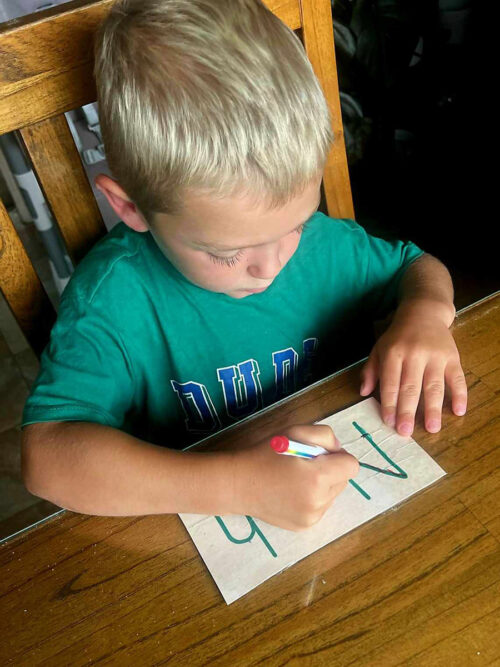Why Home-Based Early Learning is Optimal for Children's Development
When children stay in a home-based early learning environment, they benefit from personalised, nurturing interactions that are crucial for their growth and development. Our Educators are equipped with the tools and strategies to support, develop, and nurture each child’s unique learning journey, particularly for children aged three to five years old.
In a home-based setting, children are provided with the individual attention they need, which fosters a deeper sense of security and connection. Research has shown that smaller, more intimate environments, like home-based early learning, have a positive effect on children’s emotional well-being and brain development. One key aspect of this is the management of cortisol, the stress hormone, which can have detrimental effects on children’s development when levels are consistently elevated.
In large group settings, where children are exposed to a greater number of peers, noise, and potential stressors, cortisol levels can rise, which in turn impacts learning, memory, and emotional regulation. Conversely, in smaller, home-based environments, children experience less overstimulation, which helps keep cortisol levels in check and supports a more regulated, calm state conducive to learning.

Our Educators engage with children in ways that are authentic and meaningful, facilitating learning within the natural context of play in the home and community. This approach encourages independence, problem-solving, and the development of self-help skills — all of which build confidence and competence. Children are empowered to make decisions, develop communication skills, and collaborate with others, promoting their overall social and emotional development. This aligns with Te Whāriki’s principles of Empowerment (Whakamana) and Contribution (Mana Tangata), where children are viewed as capable and confident learners who actively participate in their own learning.
Additionally, our transition to school programme emphasises meaningful numeracy and literacy skills, ensuring that children are well-prepared to transition into formal schooling. By fostering an environment where children are seen as capable and competent learners, we lay the foundation for their future educational pathway, encouraging lifelong curiosity and a love for learning. This approach is in line with the Holistic Development (Kotahitanga) strand of Te Whāriki, where learning is integrated and supports all aspects of a child’s growth.
Research also supports this individualized approach, showing that the more personalised and consistent the early learning experience, the more likely children are to thrive emotionally and academically. The continuity of care in a home-based setting helps create stable, secure relationships with educators and peers, which is critical for a child’s development. This aligns with Te Whāriki’s principle of Relationships (Ngā Hononga), where strong, supportive relationships are at the heart of children’s learning experiences.
In sum, home-based early learning allows for a balance of structured learning and emotional security, keeping cortisol levels in check and allowing children to thrive in ways that larger, group-based settings cannot always provide. This approach aligns deeply with Te Whāriki, ensuring that children grow as capable, competent, and confident learners (Empowerment – Whakamana) while building a strong foundation for their future education journey.



